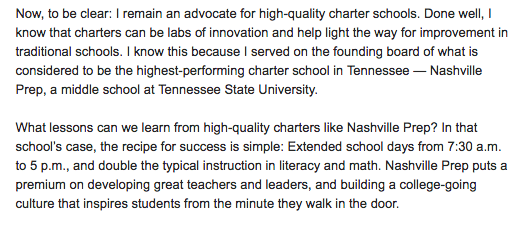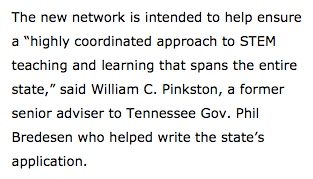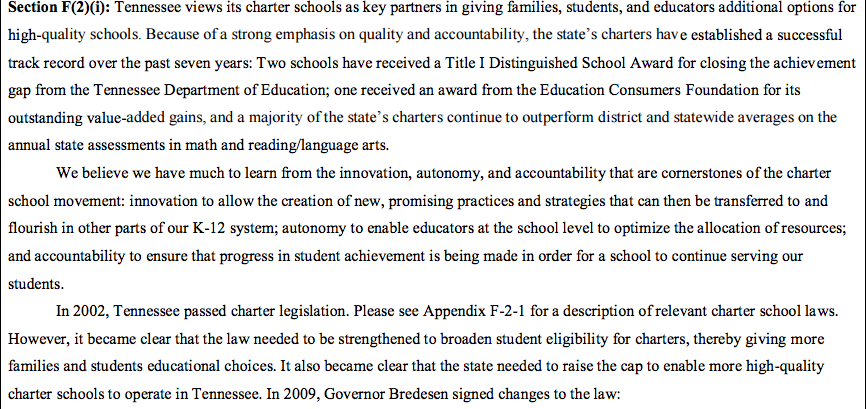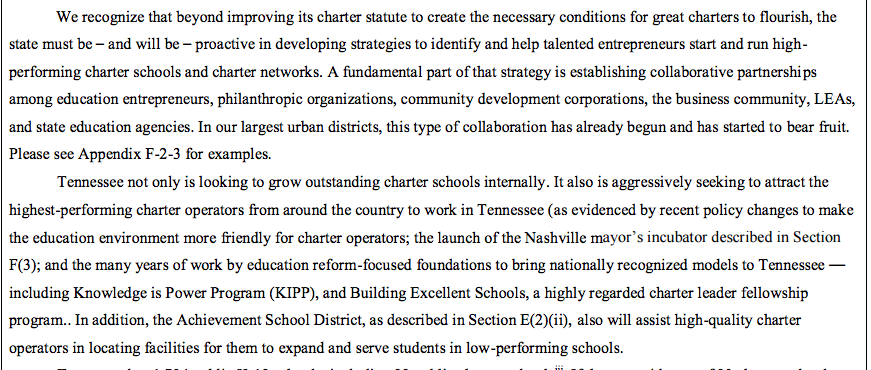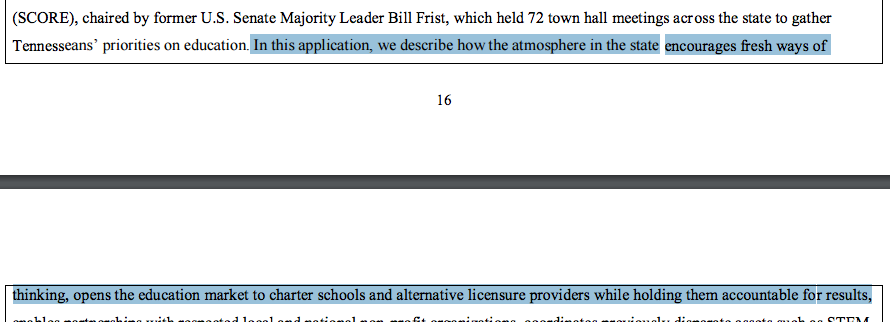I wrote earlier this week about the continued existence of the Tennessee Virtual Academy operated by for-profit vendor K12, Inc. The school operates year after year despite repeated failures and disappointing results.
This Education Week story offers some insight into the bigger picture of online education and for-profit operators. The bottom line: These companies spend millions lobbying and making campaign contributions so they can gain access to public dollars. Then, they fail to deliver results. In fact, some would argue that’s the business model: Take all the money they can, then do as little as possible for kids.
Here’s the portion of the Education Week piece focused on the Tennessee experience:
Those issues are not unique to online charter schools—full-time online programs run through school districts have run into many of the same problems. And especially for a small, rural school system, the opportunity to enroll students in their district from across the state can offer a powerful financial incentive.
Take, for example, Tennessee, where K12 Inc. has spent between half a million and $1.1 million hiring lobbyists over several years. One of them was chief of staff to former Tennessee governor and current U.S. Sen. Lamar Alexander, who is the chairman of the education committee in the Senate.
The state passed a virtual school law in 2011 that mirrored model legislation written by The American Legislative Exchange Council, or ALEC, an influential conservative think tank. A few schools opened up, including one run by K12 Inc. through a poor, rural school district in the northeastern part of the state.
Since then, K12’s Tennessee Virtual Academy, whose enrollment at one point ballooned to nearly 2,000 students, has been one of the worst-performing schools in the state ever since, but has so far managed to avoid being shut down.
Both Democratic and Republican lawmakers have proposed bills that would have shuttered failing virtual schools. One, sponsored by a Democrat in 2013, was killed in committee, even after the lawmaker produced a leaked email from a K12 Inc. staff member that appeared to instruct teachers to change students’ grades. Lawmakers did go on to approve a bill that session that gave the state education commissioner the power to close a failing virtual school after three consecutive years of poor performance, but they struck language from the bill that would have capped enrollment.
Republican state Senator Dolores Gresham—who sponsored the original legislation to allow virtual schools—introduced a bill in 2015 that would have also cracked down on failing virtual schools, but it never came to a vote.
That same year, Gresham also sponsored a bill to extend the state’s virtual school program through 2019.
That one passed.
When Kevin Huffman, a former state education commissioner, tried to shutter the Tennessee Virtual Academy with the authority given to him under that 2013 legislation, it devolved into a years-long saga. Parents sued state officials to keep the school open and a judge ruled in their favor. The school could stay open through the 2015-16 academic year.
Then K12 Inc. caught another break.
A botched roll-out of Tennessee’s computerized testing system in 2015-16 forced officials to toss out all student testing data. That extended the life of the Tennessee Virtual Academy another year.
K12 Inc. said the school has persisted not because of lobbying on behalf of the management company, but because it should never have been targeted for closure in the first place. Although company officials acknowledge that the Tennessee school has struggled academically, they say the school was unfairly singled out by state education officials.
The experience led Huffman, a staunch supporter of charter schools who is now a fellow at New America, a Washington-based think tank, to shift his stance on full-time online schools and for-profit companies that run them.
“I don’t see evidence of for-profit models that work,” he said in an email to Education Week. “Theoretically, a for-profit operator could run effective schools, but in practice, the top charter school operators are all non-profits, and I don’t think it’s accidental.”
As I noted in an article years ago, this is one more example of the battle between money and kids. Guess which priority wins?
For more on education politics and policy in Tennessee, follow @TNEdReport
Your support keeps the education news coming!




